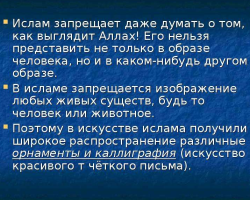The Russian language is very complicated for foreigners, since there are words that are written both together and separately - it all depends on what meaning we want to invest in a particular proposal.
Content
For example, the word "not for long" or "not for long"? Let's figure out in which case the first option will be correctly selected, and in which the second.
When you need to write "for a long time" together?
- The definition of "for a long time" indicates a long period of the execution of some action. For example: "We had to postpone this work for a long time". It is impossible to change, since it is an explanation for the verb-speculative and at the same time gives an answer to a specific question: “Work is postponed (how much?)”-for a long time.
- Having studied the grammatical signs, we can conclude that this word is an adverb. If you add the prefix “non-” to it, then we will already deal with a word completely opposite in value- "For a short time", which implies a short time.
- For example: "We had to postpone this work for a while." When constructing a proposal, you can do without this adverb, since in the Russian language there are synonyms that successfully replace it (for example, “for a while”). There is a statement in the verb-stressed proposal, and there is no contrast.
- In the above case, the word "for a short time" (meaning a short time) you need to write partlysince the prefix "non-" is used to build affirmative proposal.
- The adverbs present in the proposal that determine the measure or degree (extremely, very, completely, very, etc.) do not affect the fact that in this case this word needs to be written together.

For a long time: examples of sentences
Examples of proposals:
- I'll take your phone for a short time.
- Michael left his workplace for a short time.
- For a short time we distract from the main topic.
- Maria briefly stopped her gaze on me.
- The wife left for her mother for a while.
When should “not long” write separately?
There are three options in which the adverb “not for long” is written separately:
- Option one: When the opposition is used. Example: He did not settled in the country for long, but will return home soon.
- Option Second: when entering words to enhance denial, such as: “far”; "By no means"; "At all", etc. Examples: He left by no means for long. It’s not at all for a long time that I need this directory. This summer rain has charged today far from long time.
- Option Third: If the proposal uses negative pronouns or adverbs. Examples: Although it was sad for me, the state of universal longing lingered in me not for long. Not at all for a long time I am leaving you.

It happens that the value of the adverb’s used can be interpreted in two ways, in which case it should be written differently. If an affirmative form is used, then you need to write it in one word, if negative - in two words.
For comparison:
- It came out for a short while (it uses the statement that for a short period of time).
- It did not come out for a long time (the denial is used that not for a long period of time).
As you can see, in Russian the word "for a short time" is much more often written together than separately.
Let's also consider how to write together or separately:







